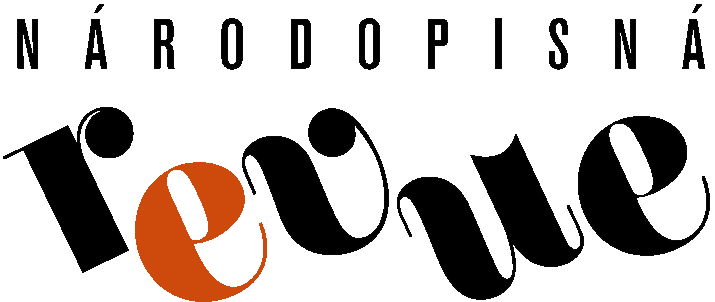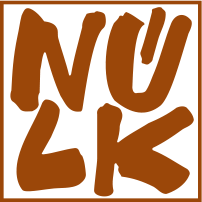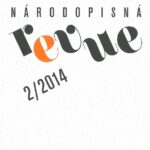Journal of Ethnology 2/2014 is devoted to the theme of Heuristics, Criticism, and Interpretation of Ethnographic Resources. Daniela Stavělová publishes a contribution to historical study of dance folk culture (Dance in Diaries, Memories, and Memoirs: a Dilemma of Interpretation). József Liszka focuses on how the verbal art was affected by printed production, in particular by broad-side prints (On the Boundaries of Popular Literature and Folk Verbal Art /on one Hungarian-Slovak-Czech Pilgrimage Legend and its Inter-Genre Context/). Barbora Machová and Eva Šipöczová deal with school chronicles (Reflection of the Relation between Village Teachers and Local Communities on the Background of Events Recorded in School Chronicles in Moravia at the Turn of the 19th and 20th Centuries). Libor Svoboda explains the reports from gendarmerie stations (Memory Books from Gendarmerie Stations – One of Less-Known Historical and Ethnologic Resources). Juraj Hamar brings practical experience with the transcription of audio recordings of plays from a puppet theatre (Transcription and Reconstruction of Audio Recorded Plays by the Folk Puppet Player Bohuslav Anderle).
In Review Section, Petr Spielmann publishes his contribution Works Inspired by Folk Songs and Folk Customs (Ad One-Hundred Years of Vladislav Vaculka’s Birth) and Jan Krist his contribution relating to what would have been the birthday of Adam Pranda (1924–1984), a Slovakian ethnologist. Social Chronicle remembers the anniversary of fine artist and writer Kamila Skopová (born 1944), ethnologists Alena Jeřábková (born 1934) and Olga Kandertová (born 1944), and publishes an obituary for ethnologist Jan Souček (1946–2014). Other regular columns include reviews of new books and news from the branch.
Dance in Diaries, Memories, and Memoirs: a Dilemma of Interpretation
The study introduces resources of folk origin, which has almost not been used by the ethnology so far and which can bring valuable evidences about the lived form of folk dance culture. The development of those resources relates to the period when a kind of well-read persons or amateur writers came from village society, who paid their attention to farmers´ economic matters; they were interested in the expressions of social and cultural life, as well as in patriotic events in the second half of the 19th century. A special attention is paid here to the description of dance parties as a part of the events of that period. The interpretation of these resources requires combining of different methods and approaches; the ethnochoreology is supported here both by the attitude of so-called new cultural history focused on the study of mentalities, and by narrative approach. The source material is understood as life stories that simultaneously express the situations and contexts within which they were produced. The following issues constitute the basic dilemmas of interpretation: whether the structure of what is interpreted (text) or its function (context) should be accentuated, if one should focus on content or form, whether one should proceed on a part or a whole, and if the interpretation should be aimed at an individual or culture.
On the Boundaries of Popular Literature and Folk Verbal Art (on a Hungarian-Slovak-Czech Pilgrimage Legend and its Inter-Genre Context)
The author of this essay devotes himself to mutual relations and inter-ethnic processes between written and folk culture. On a particular example of a legend about a pilgrim who brought her heart, ripped out by outlaws, to Mariazell, the author introduces a text transcription within the literature (within inter-ethnic context) as well as from the literature to verbal art. The theme can be found in pilgrimage prints written in Hungarian, Slovak, and Czech. Even German variants are anticipated to have existed/exist but these could not be supported by particular materials so far. The variants known from the literature occur sporadically in Hungarian and Slovak verbal arts, however just their organic life in folklore has been documented; we do not know other variants – these were probably read directly from manuscripts, without melody etc. The process of folklorization has not been finished in this case, the text borrowed from the literature have not become an organic part of Hungarian or Slovak verbal art. Based on our contemporary knowledge we can state that they have remained on a halfway to folklorization.
Reflection of the Relation between Village Teachers and Local Communities on the Background of Events Recorded in School Chronicles in Moravia at the Turn of the 19th and 20th Centuries
The submitted study focuses on the social position of village teachers and their relations to village local communities at the end of the 19th and the beginning of the 20th century. It is based on large source study of school chronicles in five Moravian districts (Vsetín, Zlín, Uherské Hradiště, Znojmo, Žďár nad Sázavou). Based on the analysis of chronicle reports, the authors define the auto-image of a teacher and reconstruct the hetero-image: how a teacher viewed the community and mutual relations. The study analyses situations that used to be a matter of frequent disputes between a teacher on the one side, and church administration, municipality, and local inhabitants on the other (teacher’s salary, school attendance, construction of a new school building, relation to local priest). The teacher who entered the local community as a strange element was on the boundary between the internal and external world (he was a state administration representative) and he had to build-up and defend his position. By means of defined situation, the authors search for deeper factors affecting the relations of the teacher with other engaged parties. The study puts stress on the importance of school chronicles for the study of social culture of the country, as well as on their contribution for ethnology of the village at the end of the19th and the outset of the 20th century.
Memory Books from Gendarmerie Stations – One of Less-Known Historical and Ethnologic Resources
The study writes about so-called memory books of gendarmerie stations – a resource that so far has been used mainly by those interested in modern military history (in many memory books are vividly described the events from 1937-13-939 and from May 1945), history of security corps and regional history. The opportunity to use the memory books for social history, history of everyday life or history of criminality remains aside. The memory books of gendarmerie stations were one of fruits resulting from an unusual boom of chronography in the former Austrian-Hungarian Empire and then in Czechoslovakia in the early-20th century. Although they existed for less than forty years as official documents, they were written in one of the most dynamic and dramatic stages of Czech modern history limited by the World War I from the one side, and the communist totalitarian regime from the other. All social turns were also reflected in gendarmerie memory books that became one of the important resources of Czech modern history.
Transcription and Reconstruction of Audio Recorded Plays by the Folk Puppet Player Bohuslav Anderle
Anton Anderle (1944–2008) was a representative of the third generation of the Anderles, a folk puppet-player family from Radvan. Although the activity of folk puppet players was limited first and fully restricted later by the former governmental authorities in Czechoslovakia in the 1950s, a part of their repertoire survived in their memory. In 1972, Anton recorded on tape his father, Bohuslav Anderle (1913–1976), who recorded nearly thirty puppet plays from traditional Anderle’s repertoire, while speaking by heart, without puppets and outside the stage. The contribution writes about transcription and reconstruction of these audio recordings, heuristics, autopsies, and other methods the author was working with when transcribing the recordings. The author published the final form of transcribed and reconstructed texts in the monograph Hry ľudových bábkarov Anderlovcov z Radvane Plays by the Anderles, Folk Puppet Players from Radvan (2010), which also contains, inter alia, twenty-eight plays, comments on repertoire and typology of characters as well as transcriptions of songs Bohuslav Anderle used in his plays.



